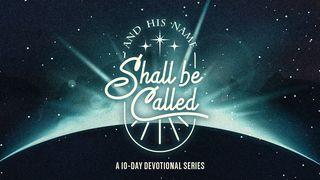5-Day Commentary Challenge - The Book Of PsalmsSample

PSALM 18
What a beautiful way to begin a psalm! “I love you, Lord.” And why not, since God was to David and did for him the dozens of things spelled out in the following fifty verses?
There is no reason to doubt the accuracy of the title to this, the fourth longest poem in the Psalter. Second Samuel 22:1–51 duplicates both the title and the psalm itself with minor variations. In that historical book is a kind of summary of David’s life. Saul was now dead. Absalom was dead. The Philistines were subdued. David’s kingdom was relatively secure.
A broad outline might be:
A praise introduction (vv. 1–3)
A picture of God the deliverer (vv. 4–19)
The basis of that deliverance (vv. 20–30)
Testimony of victory through God (vv. 31–45)
A praise benediction (vv. 46–50)
The opening three verses praise God in very general terms. He is the writer’s strength, rock, fortress, deliverer, shield, horn of salvation, and high tower. All of these have to do with the military; in fact, the whole psalm has a strong militaristic ring. Those over whom David triumphed were military foes.
Beginning with verse 4 and continuing through verse 6, David describes his deliverance, as it were, from death. Saul and Sheol have the same consonants in Hebrew; only the vowels are different. Because of this, some want to substitute Sheol for Saul in the title. Sheol is parallel with death here in verse 5.
Jonah knew this psalm and referred to verses 4–6 in his second chapter. The reference to “temple” in poetry does not prove that the poem is post-Davidic. This word is used in connection with the boyhood of Samuel many years before Psalm 18 was written (1 Sam. 1:9; 3:3).
Verses 7–15 contain an extended theophany. The earth and the foundations of the mountains shook, trembled, and quaked because God was angry. There is no record of an earthquake accompanying any of David’s deliverances. All this may be a highly figurative description of the thundering army of the Lord of hosts.
The descriptions in verse 8 sound like a volcanic eruption but perhaps are only a thunder and lightning storm, as verses 13–14 indicate. Whatever its exact meteorological nature, this violent storm is evidence of God’s vindicating, punishing power. The resultant flood from excess rain and melted hail washes bare the bedrock of the land (v. 15). The blast of the breath of God’s nostrils is, of course, the wind.
The personal pronoun me appears again in verse 17. By all these natural and supernatural means God saves His saint from the hateful enemy. Even though they choose to attack David when he is down, thus multiplying his calamity, God chooses to bring him to safety. The wide place is in contrast to the narrow escape, the tight situation, the squeeze the enemy put on him.
It is an easy transition to the next point in the outline. The basis of God’s deliverance is already indicated in verses 18–19, and 20–30 only elaborate on it. Simply put, the reason God saved David is that “He delighted in him.” That answer sounds too simple to many unbelievers. Rather than believe Christ and win eternal life, they espouse a more difficult religion of works which brings no salvation at all.
Some might accuse David of arrogance and proud self-righteousness. But remember that ultimate righteousness comes from trusting God. This one “good deed” of belief in God’s saving provision and forgiving power is counted by God to outweigh all sin. Ten times over David tells why God dealt so generously with him. All of this is based on the one little statement in verse 19: “Because He delighted in me.” If God chooses to be for us, none can stand against us (Rom. 8:31). We are His by sovereign election and He cannot forsake us. David was not saved by works—only by the work of faith (cf. John 6:29).
Verses 25–26 contain an interesting little series. God is what we are to Him. The good think He is good. The bad think He is bad. If we confess Christ before men, He will confess us before the Father. If we deny Him before men, He will deny us before the Father (Matt. 10:32–33).
In David’s day, as well as in Peter’s and in ours, God exalts the humble but humiliates the proud (1 Peter 5:5). With the figures of a lamp and a shield, the psalmist concludes this section. Verse 29b is one of this writer’s favorite testimony verses. It comes to mind whenever a human impossibility is faced. “By my God I can leap over a wall!” Joshua and the people of Israel did it literally at Jericho. David and his army did it at Jerusalem. Why can’t we?
The next large section (vv. 31–45) relates in glowing terms just how Yahweh, the only true God, gave David victory over his numerous antagonists. In figurative terms, God clothed him with strength and made his way perfect; that is, He completely prepared David. God made his feet like deer’s feet, his bow like brass, and gave him the shield of salvation. (Compare verses 32, 34–35, 39 with Eph. 6:13–17.) Having so armed His king, God held his right hand and let him take giant strides, while not letting his foot slip. Thus he chased the enemy, stabbed them, and had them fall at his feet. Notice the typical Semitic repetition in verses 37–42. How many times and in how many ways does he repeat the fact of their annihilation?
From what seem to be local triumphs, the psalmist turns, in verse 43, to boast of the international fame that God granted him. Perhaps the first stich of verse 43 indicates that internal factions had ceased. He had consolidated all areas of Israel. In the balance of the verse the annexation of nations is the subject. For all this, the only credit he takes is that he trusted God. God gave the deliverances and deserves all the praise.
The last five verses of the poem are a benediction and summarize briefly all that was said above. The ideas of rock and salvation (v. 46) echo verse 2 in the laudatory introduction. The victories recited in verses 47 and 48 reflect the bulk of the central part of the work. The last two verses conclude both the benediction and the psalm. Notice the evangelistic emphasis of this ancient, godly king. He declares that he will give thanks “among the nations”; that is, he will tell these recently conquered peoples of the greatness of his God. Why should such a man of faith not be concerned that his subjects, as well, know the true God?
Verse 50 has the word messiah in it (anointed in kjv).
The phrases “to his king,” “to his anointed,” “to David,” and “to his seed” are parallel. That seed, we learn elsewhere, is none other than Christ our Lord.
To a certain extent we can share in the exultation of this psalm. Not only might we slightly resemble David in our faith, but because we are in Christ we share in His conquests as He builds and blesses His kingdom.
Scripture
About this Plan

This reading plan is from the Everyday Bible Commentary on Psalms 8, 18, 19, 51 and 71. It is for anyone who has a desire to grow deeper in their understanding of the Scripture and strengthen your relationship with God by exploring the riches of the book of Psalms.
More
We would like to thank Moody Publishers for providing this plan. For more information, please visit: https://www.moodypublishers.com/books/bible-study-and-reference/psalms---everyday-bible-commentary/
Related Plans

Silent Nights, Peaceful Days: Rest for Moms at Christmas

And His Name Shall Be Called

Living Thankful, Living Sober

IF NOT YOU, WHO?: 5 Days to Go and Tell

More Than a Story

The Results of a New Life in Christ

Train Up a Child: Christmas

The Blessing of Jesus

5 Reflections on Mary's Song for Advent
